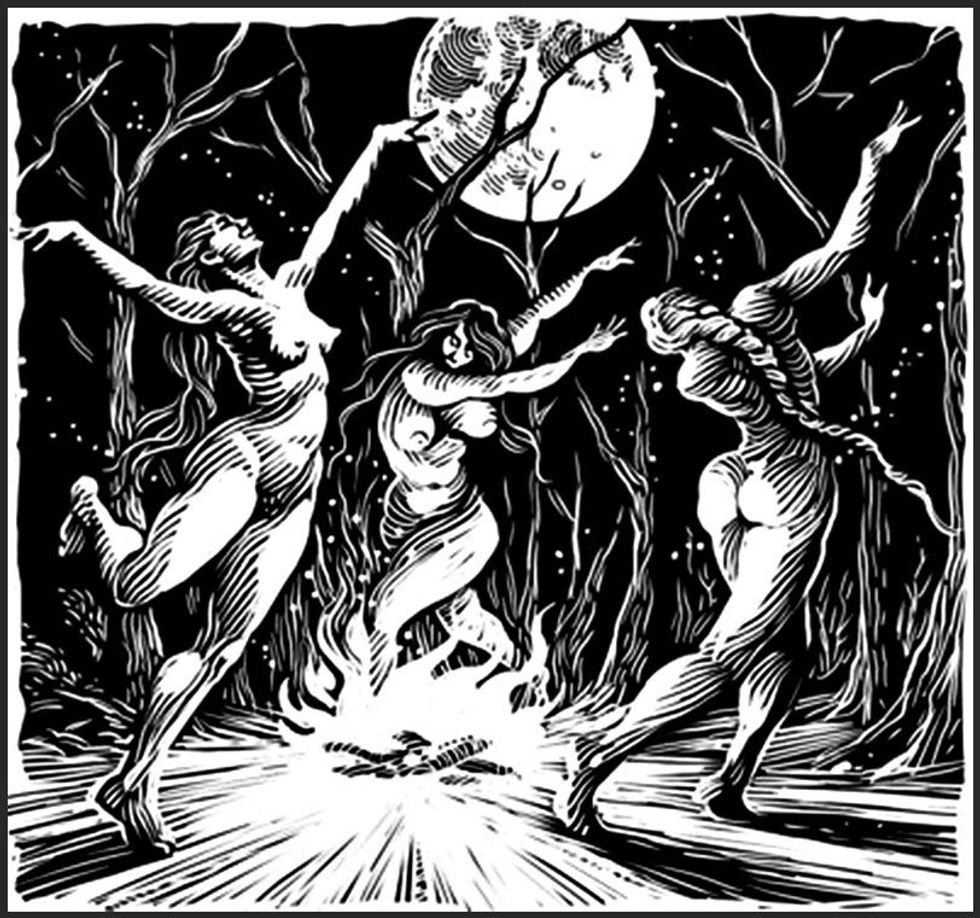Noun / bru·ja / ˈbrüˌhä
Meaning: Witch/ Witchcraft
Slang: A straight up Bitch
The origin of La Bruja is unknown but what we do know is that it was found somewhere around the 16th century and used to describe the act of overhearing a Jewish prayer that began with "Baruch Ata." During this time in Spain, the Jewish religion, in contrast to Christianity, was an act of pure evil for the Spaniards. The Non-Indo-Spanish term for witch, witchcraft or sorceress, carried it's way down the transatlantic trade route and was adopted by several Hispanic countries in Central and South America, as well as by the Hispanic-Caribbean population.
In many Latin American cultures, words began to develop and shift into different meanings. The slang for a Bruja began in Mexico and carried its way down the rest of the chain of Spanish-speaking countries as a derogatory term for a woman--the witch is essentially a bitch in contemporary Spanish linguistics.
When using the word as a feminine noun, it describes a woman looking un-kept or appearing to be unpleasant, hag-ish and is more often used to refer to an older woman.
Hispanic women themselves use the word to put themselves down, to describe a bad hair day, one would say:
"Yo parece como una bruja con este pajon de pello"
"I look like a witch with all this poofy hair."
or to say "se ve guapa / chula junta a mi que parece como una bruja."
"I look terrible in comparison to another female companion, archnemesis etc."
However, La Bruja represents power and mystics. Despite the unpleasantries she is faced with (it's hard out there for a witch when your career is based on the hardships), I still want to Maleficent the word--cast Angelina Jolie and put everyone on board that being a Bruja is not a bad thing!
Aurora Levins Morales, The author of "Remedios: Stories of Earth and Iron from the history of puertoriquenas," sheds some light on La Bruja. Reflecting back on the torture that women of the 17th century endured because of this word, she faces the duality of female persecution and survival within the Caribbean community. Taking back this remark on women, La Bruja, as a woman is neither good nor bad, has inexplicably survived in-spite of overwhelming persecution and her toughness is what conveys her beauty.
As an Afro-Latina, coming from the Dominican Republic and knowing the history of my people, the struggle for freedom and poverty and the lack of information in regards to our family history is a weight that I and many other young Latina women will carry until those problems are solved. So until then, why not be a magic-wielding woman who can overcome anything? Be the Bad Bitch, be La Bruja!





















